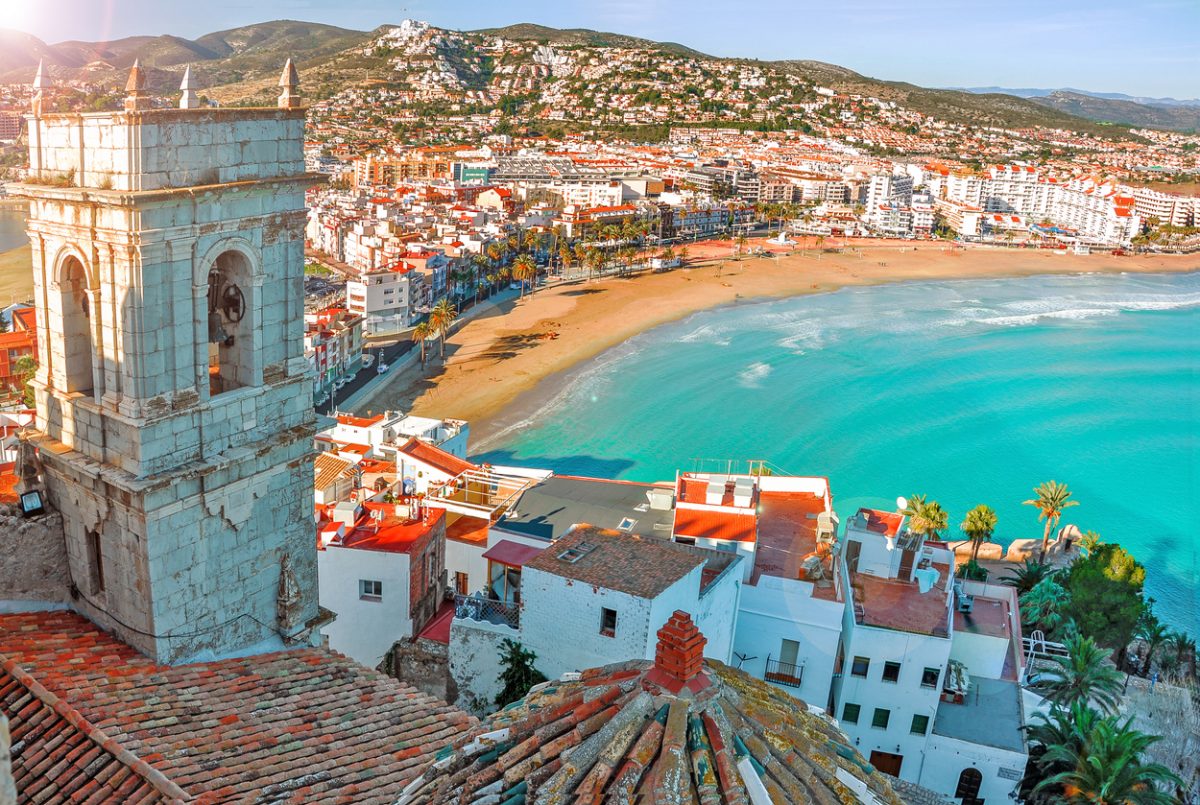Study in Spain
Study in Spain – Spain is a popular study abroad destination for international students. The country is known for its vibrant culture, warm weather, and world-renowned universities. Spain is a hub for higher education with a range of universities, including some of the oldest in Europe. Spanish universities offer a variety of programs in fields such as business, engineering, law, medicine, and the arts.
In addition to the academic offerings, Spain has a lot to offer in terms of extracurricular activities. The country is known for its lively nightlife, delicious cuisine, and breathtaking landscapes. Students can also take advantage of the opportunity to learn Spanish, one of the most widely spoken languages in the world.
International students who wish to study in Spain are required to obtain a student visa. The visa application process can be lengthy, so it is important to start early. Students must also show proof of sufficient funds to cover their expenses while in Spain.
Overall, Spain is an excellent destination for students looking to study abroad in a vibrant and culturally rich environment.
Why Study in Spain?

1. Spanish universities charge affordable tuition fees
Many international students won’t have to pay more than 4,000 EUR per year to study in Spain. And numerous study programmes actually start at only 100–150 EUR per year. Still, keep in mind that non-EU/EEA students don’t always enjoy the same low tuition as EU/EEA citizens.
2. Top-ranked universities, especially business schools
Over 50 Spanish universities earn their place in the international university rankings every year. Out of them, business schools are the stand out institutions, as Spain is know for being a supportive place for future entrepreneurs and business people.
3. Amazing climate for sun lovers
Spain has one of the most enjoyable weather in Europe. Temperatures vary from one region to another; but it’s safe to say that if you love the sun, going to the beach, and feeling all that pleasant warmth touching your skin, then you cannot go wrong by choosing a Spanish university for your studies.
4. Discover the relaxed and enjoyable Spanish lifestyle
Although the famous siesta, the habit of taking a nap after lunch, is slowly declining, it still remains a part of the traditional Spanish lifestyle and customs.
You can enjoy your siesta as well as other local habits and dishes, like tapas, flamengo — a beautiful art form — and, of course, you’ll witness and maybe participate in the passionate celebrations related to football, which is incredibly popular.
5. Spanish is a great asset on any C.V.
As you already know by now, or should know, speaking only one foreign language is not always enough. Employees are encouraged to know at least another language in addition to English, and there are many online tools available for those who want to learn at their own pace.
But living and studying in Spain for a few years is the best opportunity to learn Spanish. You will anyway need at least the basics, since not everybody speaks English.
How to Apply in Spain
If you’ve decided to study a Master’s degree at a university in Spain, you will have to gather the right documents to prove that you fit the university requirements. Provide complete personal information, previous qualifications, financial information, and a personal statement.
What documents do I need to provide to apply in Spain?
To apply to a university in Spain you will likely be asked to provide some of the following documents:
- birth certificate;
- recent photos;
- your passport or national identity card;
- one or more reference letters from past employers or teachers;
- copies of past diplomas or certificates, including your graduated Bachelor’s degree;
- academic transcripts;
- letter of intent;
- Curriculum Vitae;
- Some form of proof that you can support your stay in the country during your studies.
Depending on the subject or specialization of your chosen Master’s, you might also be asked to provide scores for additional tests like the GRE, GMAT or LSAT. Check if your programme requires any of these, or others.
The list of documents depends on the specific requirements of universities in Spain so you might be asked to include additional documents. It’s also likely you’ll have to provide official English translations of your documents, or translations in the local language.
Prove your English skills

Because you’ll study an international degree in English, you’ll have to present a language certificate. Some popular options for international students are IELTS, TOEFL or C1 Advanced language certificates. You’ll have to meet a minimum language score set by the university, and your test scores shouldn’t be older than 1-2 years. If you don’t meet the minimum language requirements, you will have to improve your skills and scores by taking an English preparation course.
Application deadlines for Spain
The deadlines for applying to a Master’s in Spain are usually during summer (June-July), or in winter (January-February). Keep in mind that some universities don’t have application deadlines, which means you can apply whenever you are ready.
To avoid delays or missed deadlines send your required documents with plenty of time in advance.
Living in Spain

Let’s take a closer look at tuition and living expenses in Spain:
Tuition fees in Spain
Talking about tuition fees at Spanish universities can get a bit complicated. But we’ll do our best to keep everything simple and crystal clear.
The tuition fees we’ll list below usually apply to students coming from the EU/EEA. If you’re not in this category, you can encounter 3 different situations:
- pay the same tuition as EU/EEA citizens
- pay tuition that is 1,000–1,500 EUR more expensive
- pay tuition that is 2 or even 3 times higher
Tuition at public universities
- 150–3,500 EUR/year for Bachelor’s degrees
- 300–3,500 EUR/year for Master’s degrees
Tuition at private universities
Most degrees will cost under 20,000 EUR per academic year. However, you can expect to pay over 25,000 or even 30,000 EUR per year for some business programmes.
Accommodation costs
Depending on the city, the type of accommodation (student residence halls vs rented flat), and the exact location of your housing, prices for accommodation range between 250 and 1,000 EUR/month. Prices for rent are the highest in cities like Madrid and Barcelona.
Choosing a student residence will save you some money as the price for a room is usually between 350 and 650 EUR/month.
Healthcare
If you come from an EU/EEA country, you can use the European Health Insurance Card (EHIC) for any healthcare services in a Spanish public hospital or clinic. However, you should acquire it prior to your departure in Spain. Non-EU/EEA students should arrange a private health insurance in Spain to cover the duration of their stay.
Emergency healthcare is guaranteed regardless of your nationality, but you may be charged for the services.
Food costs
Food bills from local supermarkets would cost between 200 and 400 EUR/month. If you want to grab a meal at an inexpensive restaurant, it would cost you around 10 EUR, while drinks in bars and pubs have prices that start from 3 EUR.
On average, living costs for students in Spain range between 700 and 1,100 EUR/month.
Work While Study in Spain

To work while studying in Spain as a foreign student, you will need to obtain a work permit. Non-EU students are required to apply for a work permit after their first year of studies, and EU students can work without a permit.
To apply for a work permit, you will need to have a valid student visa and be enrolled in a recognized educational institution in Spain. You will also need to have a job offer or contract from a Spanish employer that covers at least 20 hours per week.
Once you have these requirements, you can apply for a work permit at the Spanish embassy or consulate in your home country or in Spain. It’s important to note that work permits are usually granted for part-time work only, so you should not rely on it as a primary source of income.
It’s also worth noting that many universities and educational institutions in Spain offer job placement services to help students find part-time work opportunities that are relevant to their studies. This can be a good option to gain work experience in your field while earning extra income.
Overall, obtaining a work permit in Spain can be a bit of a process, but it is possible for foreign students to work part-time while studying in Spain.
Spain At a Glance
| Course Duration | Intake | Application Fee | Requirements |
| 3/4 Years (Bachelors) 1/2 Years (Masters) | February ,June, September | 70 to 200 (EUR) | No IELTS required Academic- above 55% |
| Language Proficiency | Tution Fee (Yearly) | Living Cost (Yearly) | Visa Application |
| IELTS-6+, TOEFL-80+ Waiver possible | 5000 to 15000 (EUR) | 10800 to 12000 (EUR) | 90 (EUR) |
| Air Ticket | Processing Time | Part Time Work | Post Study Work Permit |
| 90000 to 126000 (BDT) | 4-6 Months | 20 Hrs | 12 Months |
Our Affiliated University List
| Sr No | University Name | City |
| 1 | EU Business School, | Barcelona |
| 2 | LaSalle College, | Barcelona |
| 3 | Geneva Business School, | Barcelona |
| 4 | UCAM International, | Murcia |




Pingback: Digital Nomad Visa - Openwindow